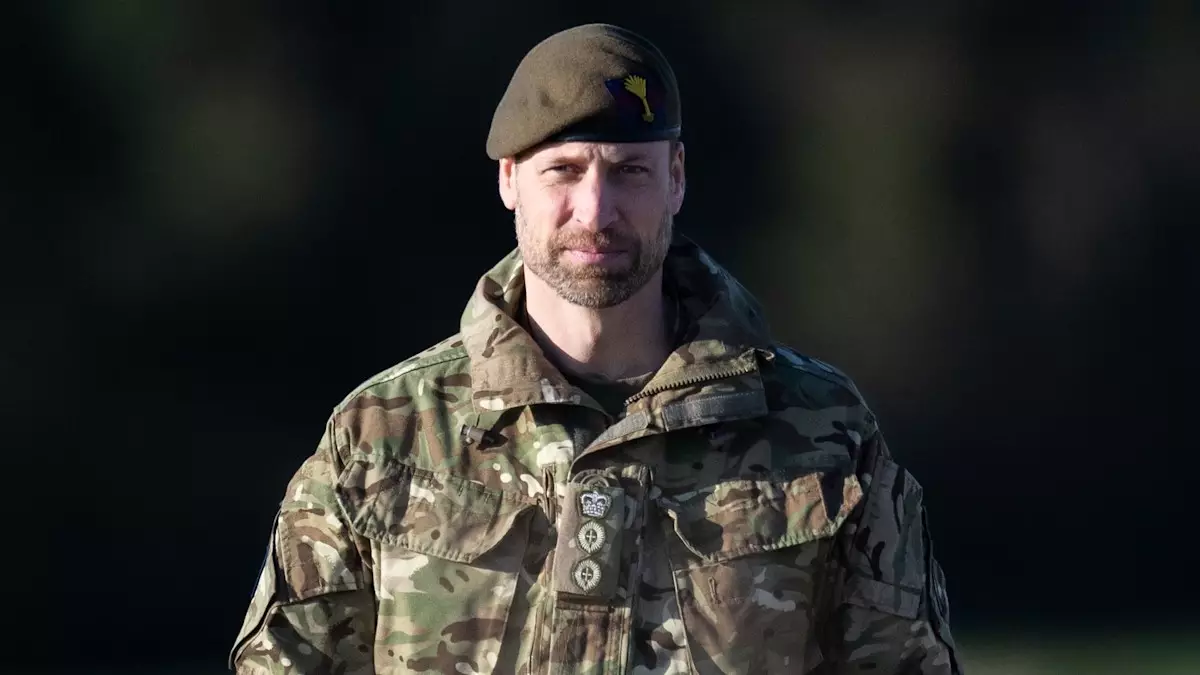Prince William, known formally as the Prince of Wales, has demonstrated his steadfast commitment to the British armed forces. Recently, he participated in military training alongside the Welsh Guards on Salisbury Plain, a venue synonymous with military exercises and revision. This event is particularly significant as it illustrates not only his role as the regiment’s colonel but also his deep-rooted sense of duty and compassion towards those who serve the nation in uniform.
During the training session, which included live firing exercises, William donned full camouflage gear, absorbing the spirit of the soldiers he was there to support. The Welsh Guards have had a vigorous couple of years, filled with ceremonial duties that showcase their dedication and service to the crown, including their participation in high-profile events like Queen Elizabeth II’s state funeral and King Charles’s coronation. However, this shift back to “green soldiering”, as they prepare to enhance their specialist weaponry skills starting in January 2025, marks a pivotal transition from ceremonial to active military engagement.
The prince made an effort to connect personally with the soldiers he encountered, engaging in casual conversations with a sniper team. His questions, which included inquiries about the quality of their training and their feelings returning to fieldwork, demonstrated his genuine interest in their experiences. William acknowledged the rigorous ceremonial commitments these soldiers have recently undertaken, humorously expressing his desire to ensure no additional duties were expected of them.
This light-hearted interaction not only softened the austere environment often associated with military training but also helped in boosting the morale of the troops. The collaboration and camaraderie between royal and soldier transcended typical formalities, creating a moment of lightness and mutual respect that is vital within military ranks.
Recent advancements in military technology are revolutionizing how battles are fought, and drones have become crucial assets on the modern battlefield. During this training session, Prince William took the opportunity to fly a drone—an experience that aligns with contemporary military practices and emphasizes the growing integration of technology within combat scenarios. The use of drones, particularly highlighted during the ongoing conflict in Ukraine, represents a transformational shift in warfare strategies, and his engagement in this activity reflects an understanding of modern military operations.
The platoon commander characterized the prince’s visit as “very special,” underlining the historical ties that the Welsh Guards have with the royal family. This relationship extends back generations, reinforcing the significance of royal involvement in military activities and activities. The hands-on experience for troops as they demonstrated various skills to their royal patron was not only advantageous for morale but also served to strengthen the bond between the regiment and the monarchy.
Alongside his military engagements, Prince William’s role as a royal figurehead continues to evolve. With recent announcements of the Princess of Wales’s involvement in an upcoming state visit by the Emir of Qatar, it becomes clear that their responsibilities extend far beyond ceremonial duties. This engagement with international dignitaries represents a significant aspect of their roles, particularly as they embody British values and diplomacy on a global stage.
Public reactions to Prince William’s public appearances, especially with his new bearded look, reflect the evolving perception of the younger royals. Comments on social media highlight a shift in how viewers relate to them, with many expressing their admiration for the more relatable and modern image William presents while still honoring tradition.
Prince William’s visit to the Welsh Guards at Salisbury Plain encapsulates a melding of tradition, modernity, and a deep commitment to the armed forces. It serves as a testament to the prince’s dedication, not only as a figurehead of the monarchy but also as a relatable leader who seeks to engage meaningfully with those who serve their country. As he forges these relationships, the future of the British royal family stands poised to balance legacy and innovation in equal measure.

